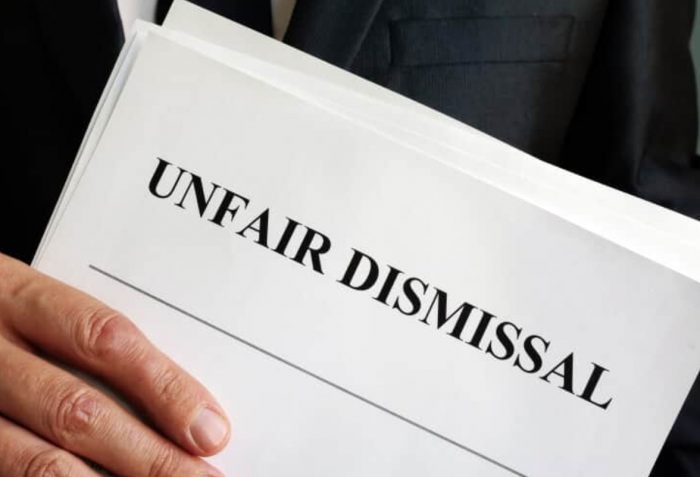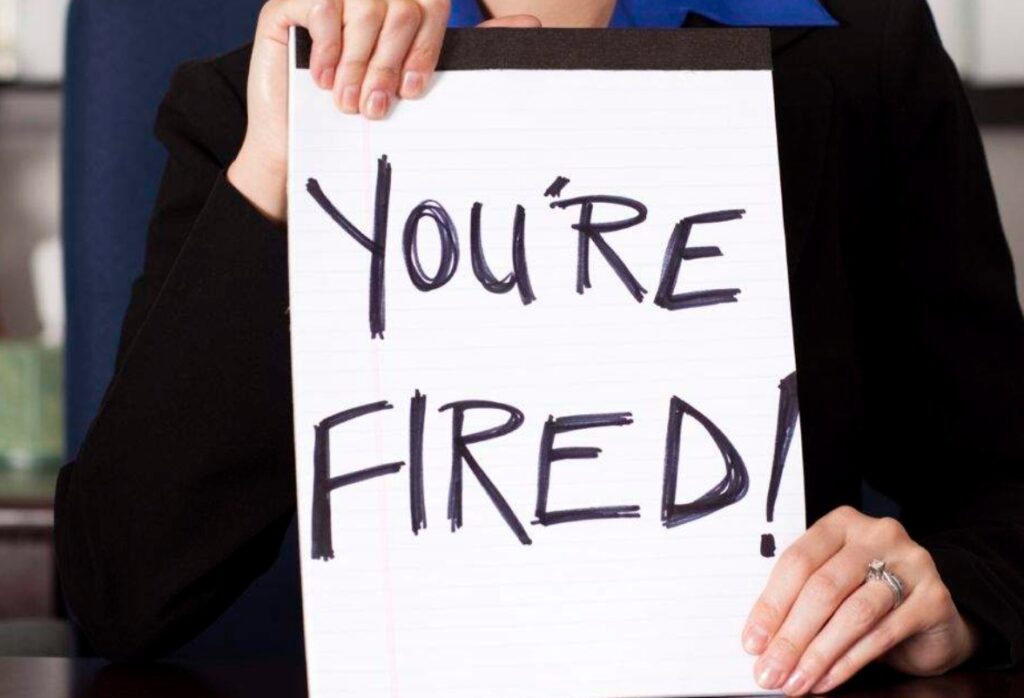
As an employee, you should be aware of your legal rights regardless of the type of your job and its nature. There are many scenarios in the workplace that often lead to trouble between the employer and his employees. In most cases, these situations involve lack of knowledge of either one party or intentional deprivation of rights. One of them is unfair dismissal.
When do you know if it is unfair dismissal? How are you going to deal with it as a laborer? These are just two of the many questions you might ask at the moment. In this page, we will provide all necessary information you need to know and answer your questions as accurately as possible.

The Fundamentals of Unfair Dismissal Explained
Unfair Dismissal Defined
According to employsure.com.au, an unfairly dismissed person faces unjust, unreasonable or harsh dismissal. Sometimes, it takes place when the dismissal does not show a genuine redundancy case and the dismissal does not comply with the country or local dismissal code.
In other words, terminating the contract of the employee without valid reason is unfair dismissal. Sometimes, it is called “unlawful dismissal”. You might come across one more term associated with it – unfair redundancy.
So, which situations count that a person is unfairly dismissed? Here are some possible reasons that you need to prove if you have been dismissed:
– Family commitment: It may include adoption leave, time off for your dependants, or paternity leave
– Whistleblowing
– Reasons associated with working hours, like being fixed term or part time
– Reasons associated with your annual leave
– Participating in trade unions
– Refusing to partake in trade unions
– Representing a trade union or as an employee representative

Furthermore, you cannot be dismissed by your employer due to aspects of discrimination that are protected by laws. These include civil partnership or marriage, age, race, pregnancy, gender, sexual orientation, or religious beliefs.
Aside from these situations, you can also count the following for unfair dismissal by an employer:
– Getting limited notice to nothing in other cases aside from gross misconduct from the employer;
– Failure in investigating issues prior your dismissal;
– Failure to observe internal procedures;
– Offering you with unsuitable alternative roles if redundancy occurs; and
– Depriving you the chance to speak regarding the situation.
If you have experienced any of these situations above and you want to make a claim for unfair dismissal, it is important to prepare and show at least a piece of evidence that you are not given fair treatment by your employer.

Why Make Such Claims?
You should exercise your rights as an employee if you have been receiving unfair treatment from your employer. If you make this dismissal claim and win it, you will receive compensation from the company for losing your job as well as other losses that you have suffered due to this circumstance. Furthermore, you may opt to reinstate in your previous position or get re-hired in the same job at the former company.
Making a Claim for Unfair Dismissal
What do you need to do if you think you are unfairly dismissed by your employer? The first thing you need to consider is appealing under the disciplinary or dismissal procedures of your employer. File a formal complaint and try resolving the reason for unfair dismissal with the employer. However, if you failed, then you can try your appeal to the Industrial Tribunal.

Contact ACAS
The first step in the process of making an unfair dismissal claim is to reach out to ACAS (Advisory, Conciliation and Arbitration Service) or the similar institution that will offer early conciliation. It is up to you on whether you are going to take it or ignore this option. You need to get in touch with ACAS to inform them that you wish to take your former employer to the tribunal.
Submit Your Fully Accomplished Application Form (such as ET1 Form)
This form may include your employment details including the legal name of your employer. You should also include the dismissal letter or other pieces of evidence you have for your dismissal. The form is available in the commission website of your respective country where you work. Take note that this form will be the primary document that the members of the board will read. Make sure that you have provided the information clearly, accurately and professionally.

The Notice of Acknowledgement
Upon receipt of the claim application form, expect that you will receive this Notice of Acknowledgement. However, if you did not receive any within a certain period as promised, contact and ask the employment tribunal. It is expected to claim it within 3 months.
The Response of Your Employer
The next step is to wait for the response of your employer. The possible result is that he may have to provide the compensation as soon as they can or do what the tribunal says. If your employer agrees, he needs to submit another form. You should have this copy as well before the date of your hearing.

The Hearing
Once everything is set between the tribunal’s instructions and your employer, you will be notified the location and time for the hearing. It usually happens within 6 months after your submission.
You should file your claim three months from your termination’s effective date. The concern about time period may require legal advice as it can be quite complex. Be cautious of the tight deadlines when submitting your unfair dismissal claim to the tribunal. In some cases, the Employment Tribunal may consider extending the submission due to reasonable situations.
Important Things to Remember
Do not forget to make and keep copies of letters and notes that you have sent and written during telephone conversations and meetings. In addition to this reminder, it is highly advised that you consult with trusted employment solicitors near you.
These specialist employment solicitors are the right persons when it comes to considering the case strength and obtaining legal recommendations to guarantee success. You can discuss and discuss whether or not to instruct the solicitor to make representations on behalf of your case. But then again, employment laws can be quite complicated. There may be some aspects that you are not confident to face the success of your unfair dismissal case. So, it is still beneficial to entrust your claim to a professional.

Frequently Asked Questions
-
What is the minimum employment period?
In order to make a claim for unfair dismissal, you must have completed the minimum employment period of either: (a) 1 year if you are an employee serving a small business having a maximum of fifteen employees; (b) 6 months if you are working for a larger business.
However, this employment period may vary from one country to another. Thus, you need to determine the employment laws and policies in your country regarding unfair dismissal cases.
-
Do I have to pay in filing an unfair dismissal case?
There are no charges when making unfair dismissal claims (employment tribunals) in some countries. However, you may be asked to pay some amount if you lodge the application form in other official government sites.

-
What are the Employment Tribunals?
These refer to the courts’ system separating from the regular civil court systems. They deal with the cases associated with employment laws like discrimination claims, redundancy matters, unfair dismissal, and wrongful dismissal.
Such cases commence in the Employment Tribunals. However, decisions made in an Employment Tribunal can be appealed to the Court of Appeal as well as the Supreme Court.
-
What is Automatic Unfair Dismissal?
This term describes situations when an employee is dismissed for a certain reason which is secured by legislation. A few common examples of automatic unfair dismissal are relating to assertion of statutory right, adoption/parental leave, pregnancy, paternity/maternity leave, and asking for minimum wage payment.
Once the employment tribunal confirms that the dismissal is automatically unfair, the employer cannot defend that claim against him. This means that the result will be in favor of the employee who made the claim.

Conclusion
Before taking a big step, make a little research first if you are qualified to file an unfair dismissal claim. If you have doubts with the information you acquire, do not hesitate to consult a professional lawyer that specializes in such cases. To get more information and professional advice from real experts, consult with O’Brien Murphy Solicitors. Visit their official page and inquire about legal matters particularly regarding your unfair dismissal case.
















